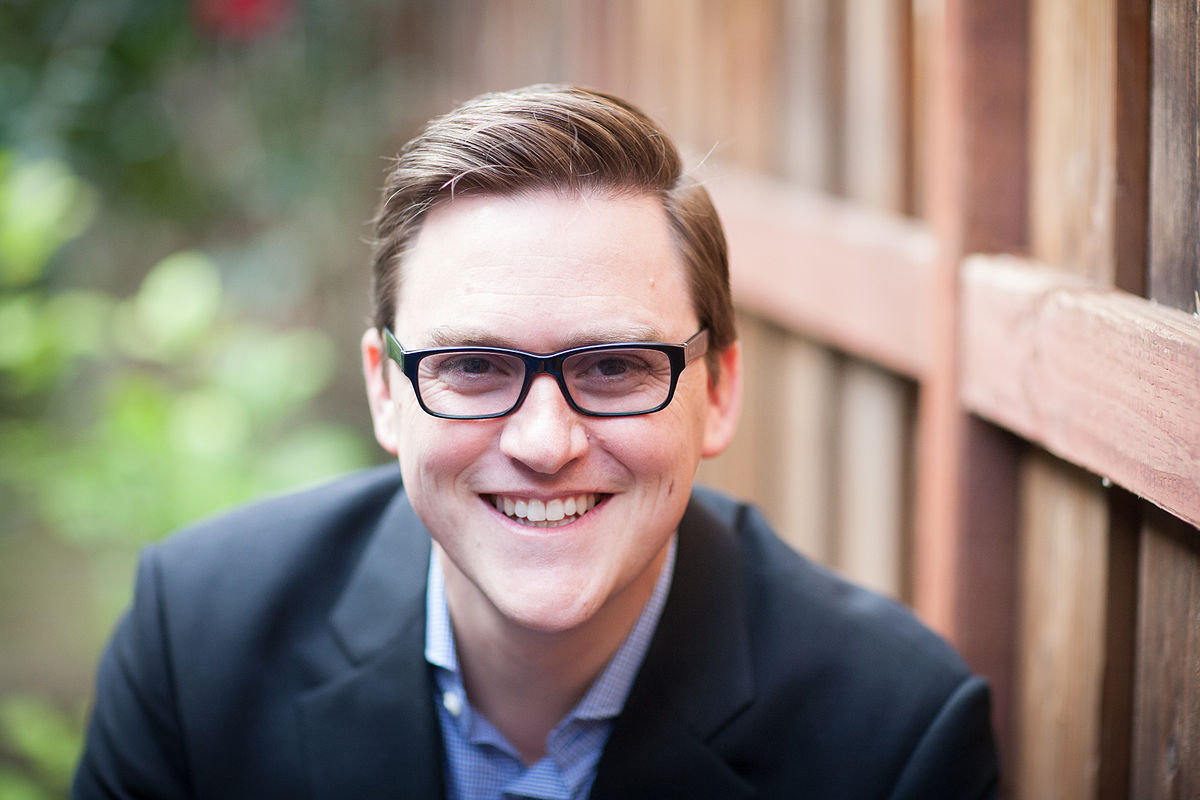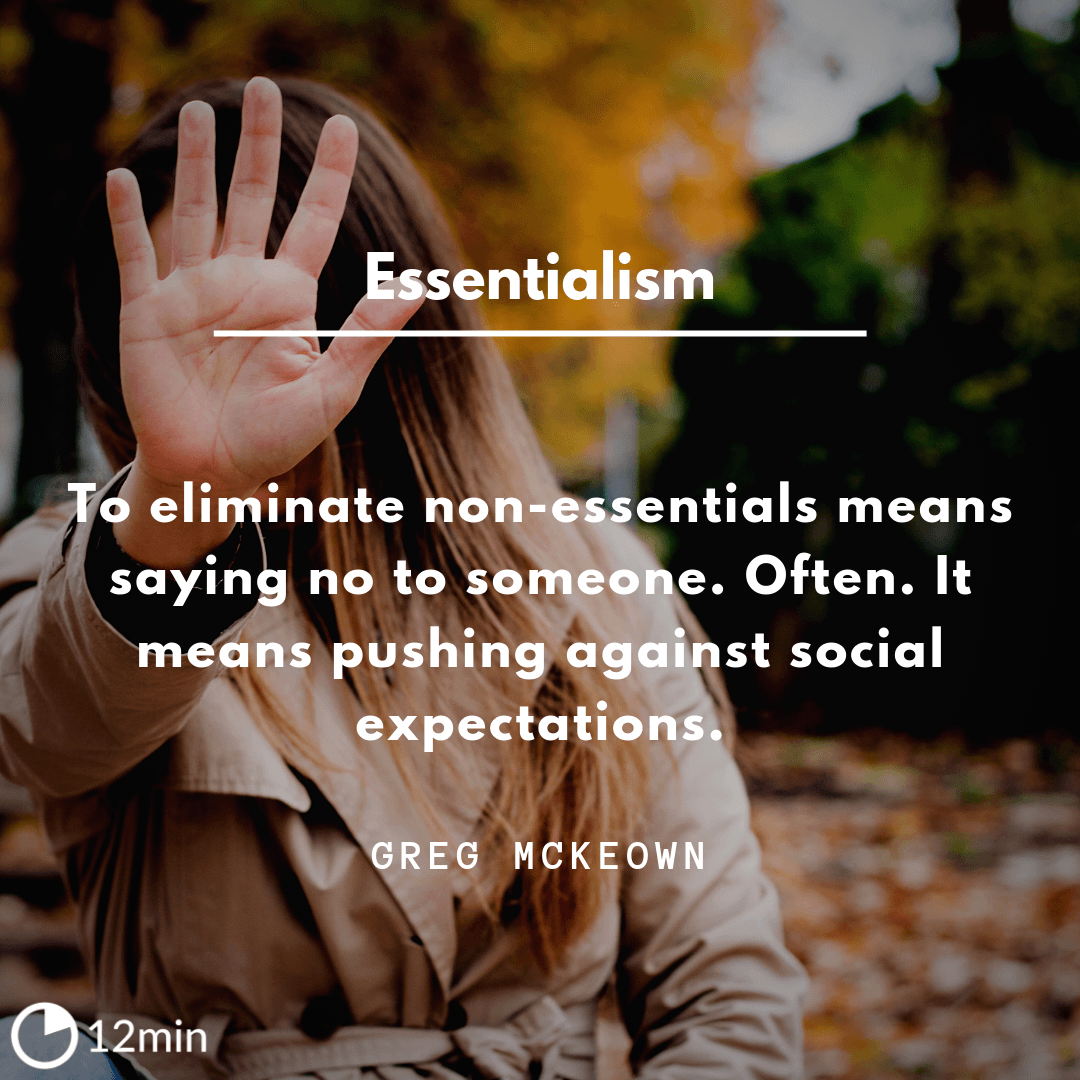Essentialism Summary
8 min read ⌚
The Disciplined Pursuit of Less
We need to do it all. We can have it all. It’s just wishful thinking. The reality always hits us at the end of the day. Exhaustion and setbacks are some of the side-effects of going in a million directions at the speed of a snail.
Never accomplishing something palpable, being in the middle of something for all eternity.
Who Should Read “Essentialism”? And Why?
McKeown graduated from Stanford with an MBA in Business Management. He resides in Silicon Valley with his wife and their four children.
In Essentialism: The Disciplined Pursuit of Less, the state of your wardrobe is the state of your life. It’s a very poignant metaphor if you think about it.
Sorting through your belongings every once in a while, donating or throwing them away if you no longer need them, keeps you from overcrowding your living and working space.
It offers you a moment of pause and reflection while you comb through the past, reevaluating and prioritizing your present.
About Greg McKeown
 Greg McKeown is an acclaimed public speaker, which gives him the possibility to travel the world and be able to connect with employees of global companies.
Greg McKeown is an acclaimed public speaker, which gives him the possibility to travel the world and be able to connect with employees of global companies.
The subjects that McKeown touches on are leadership, execution, simplicity, innovation, focus, discipline, and essentialism.
Personal experiences lead him on the road to rediscovery, becoming an essentialist. He’s the CEO of THIS Inc., a leadership training company founded in 2011, where leaders reinvent themselves and their conceptions about team management.
MANAGEMENT SKILLS / ESSENTIALISM
Essentialism is not about how to get more things done; it’s about how to get the right things done.
“Essentialism PDF Summary”
The word, Essentialism, has its point long before McKeown theory. Regardless of how you see him as a speaker; writer or a blogger, his thoughts are embedded into us, all we need to do is look for them.
By offering an instruction manual on how to intentionally place your attention only on few pressing matters, your situation will spontaneously change. Is this Nonessentialist’s age? – McKeown refers to today over-dependence on technology making us look too busy.
The sad thing is that we continue following this habit, by saying yes to new obligations, following strict rules and meeting deadlines without even stopping for a moment to ask ourselves “Why is this so important to me?
Stuck in a boring job, the only reason why you are still there is fear. This attitude will make you a slave. Before starting something, prepare and ask yourself several questions which are of significant importance according to Greg McKeown.
Don’t rush, go step by step
Our book summary is a representative of McKeown’s step-by-step strategy which makes the apparently unrealistic goals to slip through the never-ending and unbeneficial processes in our society. Live your life by your own rules.
Besides,
An Essentialist understands that clarity is the key to empowerment. He doesn’t allow roles to be general and vague.
As a leader, you should give prompt instructions with a specific goal in mind. Your team expects to receive clear objectives and an unfaltering clarity of where they are heading.
The catalyst for Greg McKeown‘s transformation into an essentialist was a choice made from the desire to please. Recognizing his error, he set out on a quest to answer questions like, “How can we make the choices that allow us to tap into more of the potential inside ourselves, and in people elsewhere?”
The result of his extensive research is Essentialism. The book centers on the core notions and techniques of essentialism, helping you create “a process that makes getting the essential things done as effortless as possible”.
A change for the better with fewer hurdles, focusing on regaining your agency, making tough trade-offs, and gaining more clarity, control, and joy in our life. It’s an ongoing process, a pledge to follow your own goals.
McKeown envisions a future where people are strong and courageous enough to adopt this way of thinking in their business and family lives.
So, what’s inside Essentialism?
The book starts with an introductory chapter explaining the ins and outs of the disciplined pursuit of less. The first part, of a total of four, portrays the “Essence” of an essentialist: the ability to choose, discern, and make trade-offs.
Moving on to the next section, “Explore”, we discover the “vital few” by analyzing our options through escape, look, play, sleep, and select.
The third part, “Eliminate”, encourages us to banish the “trivial many” by clarifying, daring, editing, and limiting our priorities.

The final chunk of Essentialism, “Execute”, shows us how to take action once we decide on our essential agenda by adopting these notions: buffer, subtract, progress, flow, focus, and be a true essentialist.
Each chapter begins with a quote from various authors, revealing the subjects outlined ahead. Real-life cases from the business industry are laid out, intertwined with the author’s personal experiences.
Essentialism is written as an open dialogue, with Greg McKeown challenging you with tough and candid questions:
Will you choose to live a life of purpose and meaning, or will you look back on your one single life with twinges of regret?
The key concepts of Essentialism are the following:
- Essentialism‘s core question is: “Am I investing in the right activities?” You’ll leave behind the need to do it all. Also, you’ll learn to make difficult decisions and trade-offs. It’s a lifelong commitment to live true to your own beliefs.
- The power of choice. Once forgotten, your free goes out the window. The circumstances or the people around you will shape your path. You’ll live “by default” – giving up on your dreams and goals, on practically all you have to offer. The options are laid out on the table. It’s up to you to step up and choose the opportunities you deem fit.
- Just a couple of issues merit our outmost and undivided attention. It’s imperative to let go of the 1:1 ratio between effort and results. You’ll discover that sometimes massive efforts don’t equal massive results, just a stalemate.
- Trade-offs. In order to achieve your desired outcome, you need to ask yourself: “Which problem do I want?” You can’t tackle two things at the same time and expect an outstanding outcome. So you’ll pick the one which leads you closer to your target. Don’t waste precious time doing a half-hearted job.
Moreover,
Essentialists see trade-offs as an inherent part of life, not as an inherently negative part of life.
Here are 5 actionable things from Greg McKeown’s book that will help you become an essentialist:
- “Create space.” For the first 20 minutes after you open your eyes in the morning, read. The books recommended are classics, not some blog post, article, or those instant bestsellers. It’ll help you surpass the need to check your email within 20 seconds of lifting your head from the pillow. This will also hit pause on the activities that await you, by putting into perspective your existence in the bigger picture.
- “Get out into the field.” Sitting comfortably at your desk and researching is just the beginning. A big piece of the puzzle of coming up with a viable solution is assessing the development through your own eyes. If you don’t evaluate the situation in the field, sustainable answers are tricky to come by.
- “Keep a journal.” It really gives you a helping hand when it comes to your selective memory. Start small, with a couple of sentences. If from day one you write a small novel, you’re more likely to forgo this exercise all together on the second day. Every 3 months take 60 minutes from your day to browse through your journal. Keep an eye open for the patterns which take shape and see what changes can be beneficial for you.
- “Keep your eyes peeled for abnormal or unusual details.” Once you hear a story, try to dig deeper. Analyze the associated news, read all there is on the subject, and understand its place in the overall view. And discover a side of the story which others have overlooked.
- “Clarify the question.” We know full well about hearing a question and offering an answer that’s unrelated. This trick may be useful, but not when it comes to understanding a plan of action. Make sure you get to the essence of the question, in order to follow through with the correct data.
Keep in mind that:
Part of living the way of the Essentialist is realising respect is far more valuable than popularity in the long run.
“Opportunity knocks.” Selecting which options suits you best moving forward is tough. The next set of questions will help you evaluate them. Grab a pen and paper.
- “What opportunity is being offered to you?” – Start by writing down the opportunity.
- “What are your minimum criteria for this option to be considered?” – Scribble away a checklist of three “minimum criteria.” To be considered, the opportunity needs to meet all three.
- “What are the ideal criteria for this option to be approved?” – Again, write down three “ideal criteria.” At least two out of three must pass for you to say a definitive “Yes” to the opportunity.
“How to be in the now.” Being distraction-free, only focusing on doing one thing at a time is a struggle. So how can you overcome it?
- “Figure out what is most important right now.” – The inevitable responsibilities that cry out for your attention is overwhelming at times. So start by asking yourself, “What’s important now?” Narrow it down in your head, until only one task remains. And then start doing it. If you can’t make up your mind, then write a list and eliminate the things which aren’t pressing right now.
- Get the future out of your head.’@GregoryMcKeown – By writing down, preferably in your journal, “What might you want to do someday as a result of today?” Get those ideas on paper, where you can revisit them later. Moreover, this process will ease the weight from your shoulders in terms of pursuing those ideas.
- “Prioritize” – Pretty straightforward. Once you’ve prioritized your “what is essential now” list, make your way down it by checking off the completed tasks one by one.
Like this summary? We’d Like to invite you to download our free 12 min app, for more amazing summaries and audiobooks.
“Essentialism Quotes”
Essentialism is not about how to get more things done; it’s about how to get the right things done. It doesn’t mean just doing less for the sake of less either. It is about making the wisest possible investment of your time and energy in… Share on X You cannot overestimate the unimportance of practically everything. Share on X The word priority came into the English language in the 1400s. It was singular. It meant the very first or prior thing. It stayed singular for the next five hundred years. Share on X There should be no shame in admitting to a mistake; after all, we really are only admitting that we are now wiser than we once were. Share on X Just because I was invited didn’t seem a good enough reason to attend. Share on XOur Critical Review
Essentialism: The Disciplined Pursuit of Less by Greg McKeown encourages you to take a step back and revise your present. It offers a way of thinking where only a selected few things are important, instead of every little thing, and at the end of the day, you’ll get more rewards by doing less.
Emir is the Head of Marketing at 12min. In his spare time, he loves to meditate and play soccer.







